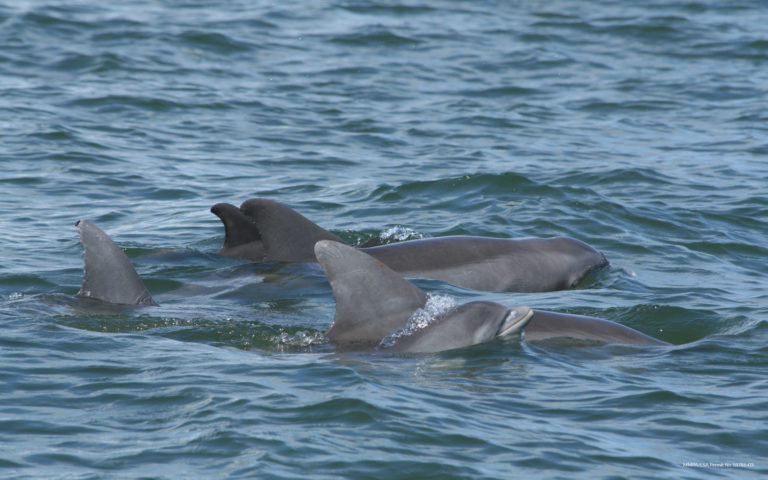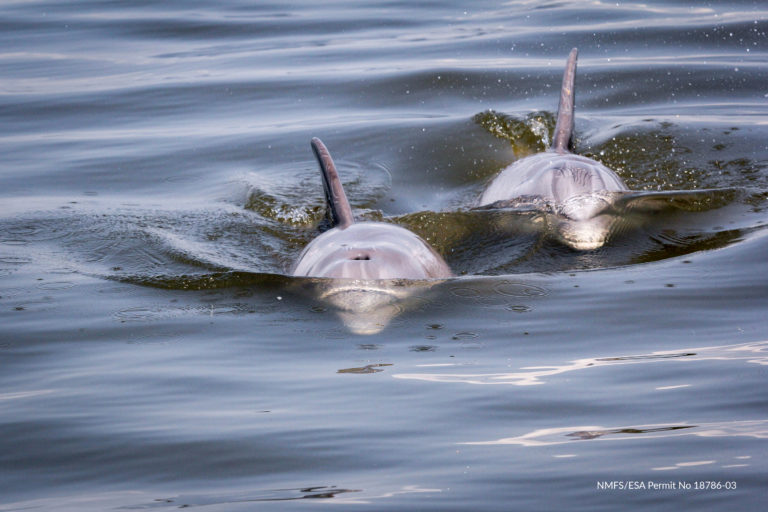FOR IMMEDIATE RELEASE
Contact: st**********@**mf.org
SAN DIEGO – Scientists with the National Marine Mammal Foundation (NMMF) studying dolphins exposed to the Deepwater Horizon oil spill in 2010 have found significant abnormalities in their hearts compared to other healthy wild dolphins. The new findings are being published in PLOS One (Public Library of Science) and are the first comprehensive cardiac assessments of wild dolphins impacted by the oil spill in the northern Gulf of Mexico.
“The findings are very concerning but not surprising, since our previous research has also shown the lingering effects of the oil spill on the health of dolphins in the area,” said Dr. Cynthia Smith, a lead veterinarian on the study. “Twelve years after the spill, we continue to learn the breadth and extent to which dolphins may have been negatively impacted.”



This is the first publication to examine the comprehensive cardiac health of wild dolphins anywhere in the world. During 2018, NMMF veterinarians, technicians, and scientists conducted health assessments of wild dolphins in Barataria Bay, LA and Sarasota Bay, FL, including cardiac auscultation (listening with a stethoscope), electrocardiograms (ECG), echocardiograms (heart ultrasound), and bloodwork. Additionally, heart tissue from dolphins who stranded and died following the oil spill were examined.
The study, authored by NMMF veterinarians Barb Linnehan and Forrest Gomez, found that Barataria Bay dolphins had cardiac abnormalities that differed significantly from the healthy wild dolphins in Sarasota Bay.
“These abnormalities included thinner left ventricular walls, presence of pulmonary hypertension, valvular abnormalities, and higher prevalence of cardiac fibrosis,” said Dr. Barb Linnehan, the study’s primary author and NMMF Deputy Director of Medicine. “These changes mirror those described in other species with oil-related cardiotoxicity, making oil exposure one possibility to explain these abnormalities, but further research is necessary to rule out other possibilities.”


Deleterious cardiac effects of Deepwater Horizon oil exposure have been documented in several species, including fish, shorebirds, and even humans who helped clean up the oil spill or lived near the spill.
The research was a collaborative effort by the Consortium for Advanced Research on Marine Mammal Health Assessment (CARMMHA), including Drs. Sharon Huston and Adonia Hsu of San Diego Veterinary Cardiology, Dr. Katie Colegrove of the University of Illinois, and Dr. Craig Harms of North Carolina State University.
Previous research by the National Marine Mammal Foundation and its partners have revealed a lower birth rate and chronic lung disease in dolphins exposed to the oil spill compared to other wild dolphins.
Funding for this effort was provided by the Gulf of Mexico Research Initiative. The scientific article, “Cardiac assessments of bottlenose dolphins (Tursiops truncatus) in the Northern Gulf of Mexico following exposure to Deepwater Horizon oil” was published in PLOS One on December 14, 2021.
Link to publication: https://journals.plos.org/plosone/article?id=10.1371/journal.pone.0261112
About the National Marine Mammal Foundation
The National Marine Mammal Foundation (NMMF) is a 501(c)(3) nonprofit organization recognized globally as a leader in marine mammal science, medicine, and conservation. Their team of experts is answering critical questions about the health of the world’s marine mammals and our shared oceans. The NMMF has a mission to improve and protect life for marine mammals, humans, and our shared oceans through science, service, and education.
###
About the National Marine Mammal Foundation





